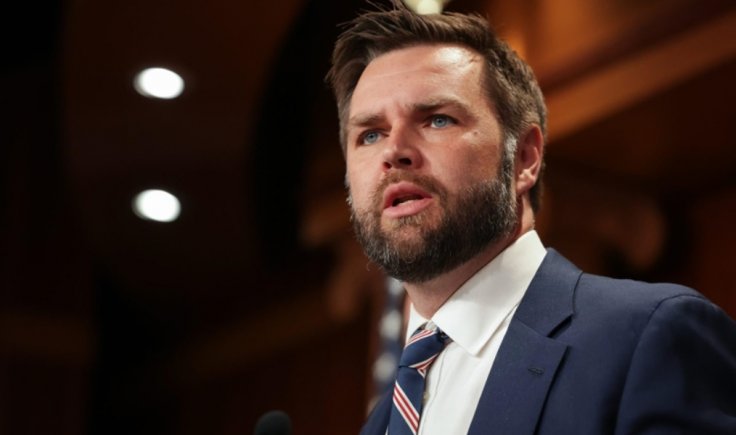In a controversial move that has sparked outrage, US Vice President JD Vance found himself defending the deportation of a Maryland father, Kilmer Abrego-Garcia, to El Salvador—a country notorious for its brutal prison system. Despite legal documents revealing the deportation was due to an "administrative error," Vance insisted the action was justified, claiming Abrego-Garcia was a convicted MS-13 gang member with no right to remain in the United States. This bold defense has left many questioning whether the government's actions were as clear-cut as Vance suggests.

On April 1, Vance stood by the decision, stating that Abrego-Garcia was a convicted MS-13 gang member, and therefore had no right to stay in the United States. Vance further dismissed concerns about the deportation, emphasizing that the focus should be on protecting American citizens from gang violence.
Abrego-Garcia, who has lived in Maryland with his wife and child for years, was deported on March 15, despite his legal status protecting him from removal. The deportation was a result of what the US government described as an "administrative error." US Immigration and Customs Enforcement (ICE) acknowledged the mistake in court documents filed on Monday, stating they were aware of Abrego-Garcia's protection but mistakenly sent him to El Salvador.
Critics of the deportation, however, argue that the man's removal was wrong, especially since he had legal protections. One online user criticized Vance's defense, calling it "disgusting" and accusing him of being a "shameless liar." They pointed out that the Trump administration had initially admitted the mistake, and questioned why Vance now defended the deportation, despite the error.
Abrego-Garcia's case has drawn national attention, with many questioning the US government's handling of the situation. The 36-year-old father, who fled violence and gang threats in El Salvador years ago, had been protected under US immigration law. He arrived in the US around 2011 without a visa and had been living in Maryland with his wife, Jennifer Vasquez Sura, and their young autistic child.
Despite the administration's admission of the error, Vance remained firm in his support of the deportation. In a post on social media, he claimed that the man's conviction as a gang member justified the move. Vance's statements have further fueled criticism, with many pointing out that Abrego-Garcia's case should not be used to defend the deportation of individuals who have legal protections.
The deportation has also caused frustration among Abrego-Garcia's family, who are calling for his return. In response, they filed a lawsuit in a Maryland federal court, demanding the federal government take action to secure his return from El Salvador. The family's legal team argues that the deportation was a grave mistake and that Abrego-Garcia's legal protections should have been honored.
The US government's handling of the situation has raised significant concerns. ICE's admission that the deportation was the result of an "administrative error" has led to further questions about how such mistakes occur, especially when the individual involved had legal status to remain in the US.
Adding to the controversy, critics have pointed to the harsh conditions at the prison in El Salvador to which Abrego-Garcia was sent. The notorious CECOT prison is known for its brutal treatment of inmates, and there are growing fears for Abrego-Garcia's safety in such an environment.
The Trump administration, which initially acknowledged the error, has since argued that US courts have no jurisdiction to return Abrego-Garcia to the US because he is no longer in US custody. This position has only added to the confusion and anger surrounding the case.
Abrego-Garcia's deportation highlights ongoing concerns about the US immigration system and its ability to handle cases involving individuals with legal protections. With his family fighting for his return, the situation continues to raise questions about the US government's commitment to upholding the rights of immigrants, especially those who have fled violence and persecution.
As the case moves forward, the legal battle is expected to continue, with advocates for Abrego-Garcia pushing for justice and a correction of what they view as a tragic mistake. The public response to Vance's defense of the deportation shows how deeply divisive this issue remains.









